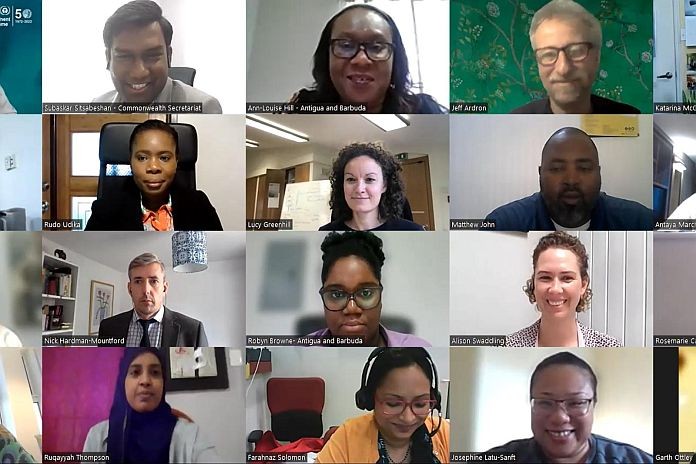LONDON, England – Two Commonwealth member countries – Trinidad and Tobago and Antigua and Barbuda – are taking further steps to advance their transition to sustainable ‘blue’ economies, so that they can effectively tap into ocean resources and support long-term economic growth while also protecting marine and coastal ecosystems.
Over the next months, these governments will each trial a new ‘Rapid Readiness Assessment’ (RRA) to evaluate how prepared their national systems, structures and stakeholders are to make this transition. Building on progress already made in each country, the RRAs will help governments and stakeholders understand their current situation and identify both opportunities and gaps.
These assessments, coordinated under the Commonwealth Blue Charter programme with the United Nations Environment Program (UNEP), Howell Marine Consulting and the University of Portsmouth, will consider factors such as leadership, laws and policies, sustainable financing, stakeholder engagement and institutional infrastructure, among others. Government officials will work with experts to review the results and outline possible next steps towards the transition.
In the process, countries will also be introduced to UNEP’s Sustainable Blue Economy Transition Framework (SBE-TF) – the RRAs serve as a preliminary step towards its application. The SBE-TF model framework is designed to complement existing initiatives at the national, regional and global level, and can be customised to suit each nation’s unique set of needs.
Project lead, Dr Jeff Ardron from the Commonwealth Secretariat, said:
“Commonwealth ocean states are acutely aware of the vast ocean resources that exist within their waters as well as the need to protect the marine environment. We are pleased to be able to support Trinidad & Tobago and Antigua & Barbuda in developing sustainable blue economies, and thank them for their willingness to pilot this new methodology. Both face similar challenges as small island developing states, but they also have key economic differences. The rapid readiness assessments should pinpoint gaps and opportunities for each.”
UNEP project lead, Ole Vestergaard, said:
“Setting out pathways for sustainable blue economy transitions can help countries tackle the triple-planetary crises of climate change, nature loss and pollution. In doing so, it generates both economic, social and environmental benefits. We are pleased to work with Trinidad & Tobago and Antigua & Barbuda in pioneering this planning approach that makes the transition practical and real.”
During the first online discussion (pictured) held last week to familiarise stakeholders with the project, representatives from the partner governments thanked the Commonwealth, UNEP and other partners and welcomed the rapid readiness assessment process.
Acting Director of the Institute of Marine Affairs of Trinidad and Tobago, Dr Rahanna Juman emphasised:
“Our small island developing states, due to inherent small size and limited resources, simply do not have the tools and means to effectively harness the full potential of the blue economy. Therefore, initiatives such as the Sustainable Blue Economy rapid assessment tool can help us to better understand the possible next steps for sustainable blue economy transition.”
Acting Director of the Department of the Blue Economy for Antigua and Barbuda, Ann-Louise Hill, added:
“The sustainable blue economy promotes economic growth and improved livelihoods across a wide range of sectors, while ensuring the sustainable and responsible use of marine resources. Through a combination of workshops, information-gathering and analysis, this process will help us to identify and understand what is required to improve Antigua and Barbuda’s sustainable blue economy.”
The Commonwealth Blue Charter is an agreement by all 56 member countries to actively cooperate to support ocean action and meet commitments for sustainable ocean development. Its work programme is implemented through 10 Action Groups, led or co-led by 16 champion countries. To date, at least 46 Commonwealth countries have joined one or more Action Groups. The Commonwealth Blue Charter Action Group on Sustainable Blue Economy is championed by Kenya and Antigua and Barbuda.





